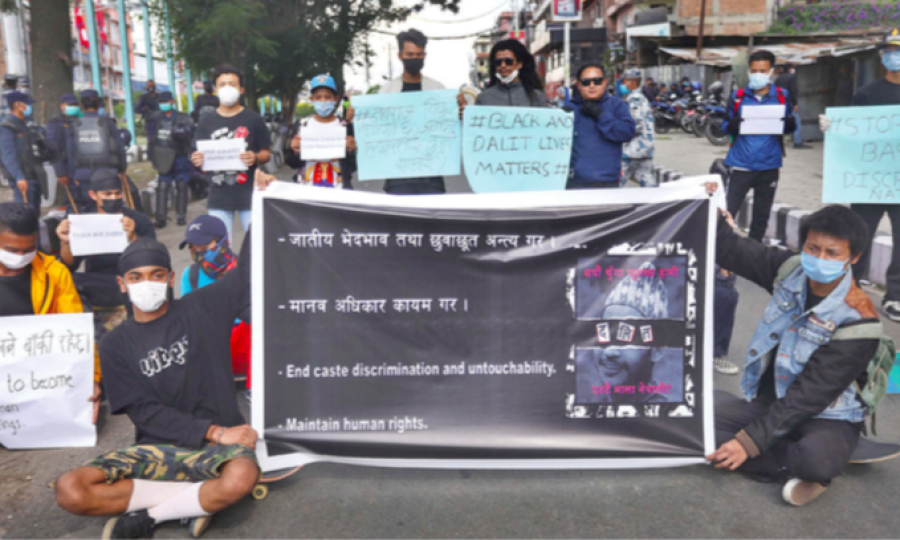Editorial
Digging for justice
Rights activists and civil society members must keep an eye on the parliamentary committee’s probe on Soti killings.
The Parliament's formation of a nine-member committee under the leadership of lawmaker Devendra Poudel to probe the killings of Dalit youth Nabaraj Biswakarma and five of his friends at Soti village in Rukum (West) is a positive step. The committee, which represents all parties in the Parliament and has a majority of members from the Dalit community, is expected to submit its report within a month. Whatever the recommendation of the committee may be, the real struggle will be in its implementation, given prior records of similar probe reports gathering dust in government offices.
In April 2012, the Parliamentary Committee on Women, Children and Social Welfare formed a sub-committee under the leadership of Binod Pahadi, then a Constituent Assembly member, to study caste-based discrimination, the problem of untouchability, and its solution. The sub-committee studied, among other cases, the killings of Sete Damai in Dailekh, Manbir Sunar in Kalikot, and Shiva Shankar Das in Saptari. However, except for punishing Sete Damai’s killer and providing Damai’s family with compensation, no action was taken on other cases. The sub-committee had also made policy recommendations aimed at providing Dalits with access to justice, education, health and communication.
In August 2016, the Cabinet formed a probe committee under the leadership of Daljit Sripali, then the Minister for Youth and Sports, to investigate the murders of Ajit Mijar, who was killed for having an affair with a non-Dalit girl, and Laxmi Pariyar, who was beaten to death allegedly by a local schoolteacher. The government provided compensation of Rs1 million each to the families of the victims but failed to implement the recommendations of the probe committee.
There is thus no guarantee that the probe into the Soti killings won't face a similar fate. Even if an immaculate probe is conducted and the perpetrators identified, the road to justice might be just as long and winding. Rights activists and civil society members must keep a close eye on the probe to ensure that the victims get justice and the perpetrators are put on trial.
Also, the youths injured during the Soti incident have reportedly failed to receive proper treatment for their wounds even two weeks later. For want of advanced imaging equipment such as CT scanners at the district hospital, the injured, some of whom had sustained injuries on their heads, had been sent home after first aid. They risk facing long-term physical and psychological distress due to the trauma they sustained. The government must immediately arrange advanced medical care for them at a major medical facility in the region or beyond to ensure that they recuperate well. It can’t abdicate its responsibility of providing optimal medical care and security to its citizens.




 18.12°C Kathmandu
18.12°C Kathmandu














